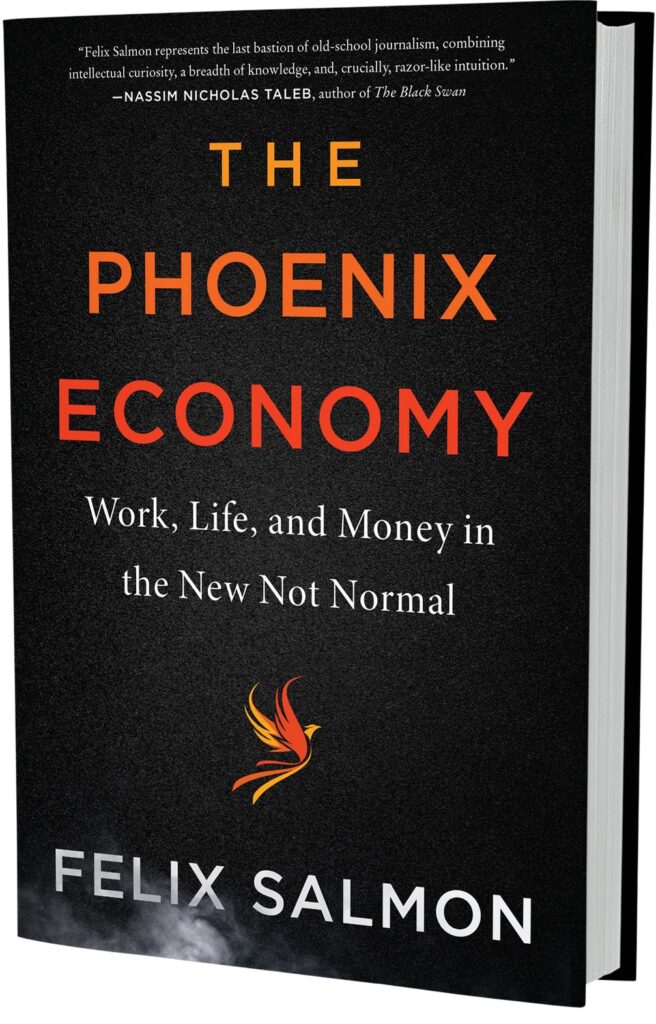
My first book, The Phoenix Economy: Work, Lie, and Money in the New Not Normal, comes out on May 9. Please preorder it! If you want to do everything online there’s a bunch of links to do so here, or you can just walk into your local independent bookstore and ask them to get it for you.
I also really enjoyed narrating the audiobook, so maybe listen to it instead of reading it? Libro.fm is the audio equivalent of bookshop.org, if you want to support independent booksellers while buying the audiobook.
The idea behind the book is that the Covid pandemic ushered in an era of “the New Not Normal,” full of surprising shocks both good and bad. My hope is that it’s a fun, enjoyable read — but also one that helps you understand what we’ve been through in the past three years and what that means in terms of navigating the future. I try to take a broad view of things; the three sections are “Time and Space”, “Mind and Body”, and “Business and Pleasure”.
Daniel Defoe provided the epigraph — and Joe Stiglitz was kind enough to say that I’m “the Daniel Defoe of our time”.
Here’s what Defoe wrote in A Journal of the Plague Year:
Another plague year would reconcile all these differences; a close conversing with death, or with diseases that threaten death, would scum off the gall from our tempers, remove the animosities among us, and bring us to see with differing eyes than those which we looked on things with before.
You might not realize just how much your eyes have changed from pre-pandemic times; the New Not Normal feels increasingly normal, these days. This book is an attempt to bring those changes into focus. I really look forward to hearing what you think of it!
